End-of-Year Learning Can Be Meaningful & Fun
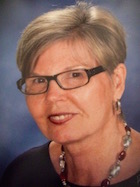 By Elyse S. Scott
By Elyse S. Scott
Many middle level teachers, like the frazzled owl, wish their last weeks of school away. They hang on for dear life because truly this time of year can be anxiety provoking at best or chaotic and frustrating at worst.
Students have different ideas about how these weeks should go, and some teachers start to lighten up as they cave to the pressure. I always found that this was the time of year when a little hard work and lots of organization paid big dividends in an end-of-year experience that was smooth, structured, and, yes, fun for all of us.
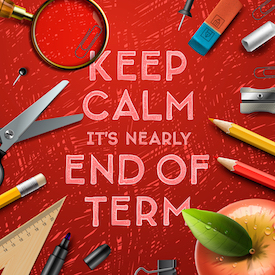
Yet I found that with a certain gentle firmness on my part, my students understood that until the final marking period grades were in, I was still in “command,” and their cooperation was an important part of that.
I reminded students, using my brand of humor, that built into all of this was an attempt to tap their creativity and review prior learning, and (if all else failed) that their “engagement” would make their summer come that much faster!
They also knew I was in this with them – often writing alongside them. Above all, we never failed to have fun.
Here are some things we did
► A Year’s Worth of News –Working in groups students created a one-page class newsletter entitled “The Year In Review.” They devised the ways the page would be set up, the number of mini articles, and assigned responsibility for each task. When the computer room or library was open, they “published” the final product. After all classes reviewed the newsletters, they chose the one to be posted on my school web page – a much better alternative to the usual “See you in the fall!” message posted there.

► Advice for Next Year’s Rookies – Middle school students love to give advice so I had them write letters to next year’s incoming students. The title of the assignment was “How To Survive Mrs. Scott’s English Class.” The letters could be serious or funny, but they had to be informative. Students shared their letters and then voted on the best one. The winning letter was abridged and included on my Course Outline for the following school year. All teachers can do this, and the results are fun for everybody!
► Make Your Own Test – For my final exam in English, I had students create test questions as well as comprehensive essay questions for possible use on the exam. I did use some of the questions on the actual exam, but as a learning community we used them for practice and review.
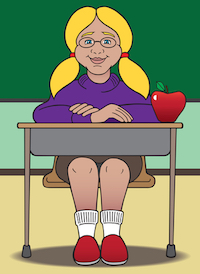
► The “Room 808” Awards – Though students can be tapped out when it comes to writing (“Do we have to?!”) they rarely mind opinion pieces when they can be subjective and speak with their own voices (which is so often discouraged across all content areas). Frequently, I would have them nominate their favorite story or novel or writer – with rationale – for a classroom Oscar. The discussions that ensued were most enlightening. This lends itself beautifully across all content areas: favorite units, favorite projects, best lesson – the possibilities are endless.
► Pick the Curriculum – My students provided a valuable service to me in those last weeks as “curriculum specialists.” I would share a new story, poem, article, or video and get their feedback on whether to integrate the materials into my repertoire for the coming year.
► Deja Vu Events – If time permitted, I had what I called “encore performances.” Many times students wanted to hear a favorite story again or hear another one by an author we had studied. If our poetry unit had been extremely successful, we might spend a few more days near the end of school writing poems. I imagine many efficient teachers are so focused on covering content and adhering to a strict timeline that they may discover some leftover time for such endeavors.
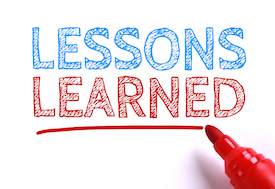
► Middle School Memoirs – If a middle school is organized in teams, this is a great across-the-team project that can be worked on in various eighth grade classes. I had students create a personal middle school book of memories. They could choose what they wanted to include, but we all know that many students need suggestions. They could write about favorite teachers, their friends, their participation in school activities and clubs, field trips, etc. Students enjoyed the “look back” and had this product to take home. (A group project might involve gathering some class-related images to include.)
An Epic Poem about Us
Now I admit that this last idea required huge amounts of my time, but I continued to do it every year until retirement because my students loved it so. I created “class poems” for every class and devoted at least four lines to each student, essentially capturing “their essence.” It was my gift to them. Here are a few samples:
► Do Something Special for Them – I heartily recommend that teachers share their gifts, whatever they may be, to create an ultimate capstone for the school year.
Good vibes come from careful preparation
All of these suggestions require careful preparation, but I think my students genuinely appreciated my efforts those last weeks of school. Obviously I did not use all activities each year, but chose various ones as time and student interest permitted.
It was important to me that these be fruitful weeks with “the harried teacher ready to lose it every day” nowhere in sight. I wanted to send my students on their way with good vibes from those last weeks in class and to feel that we had all done much more than just survive!
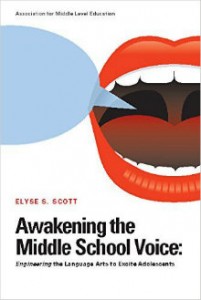

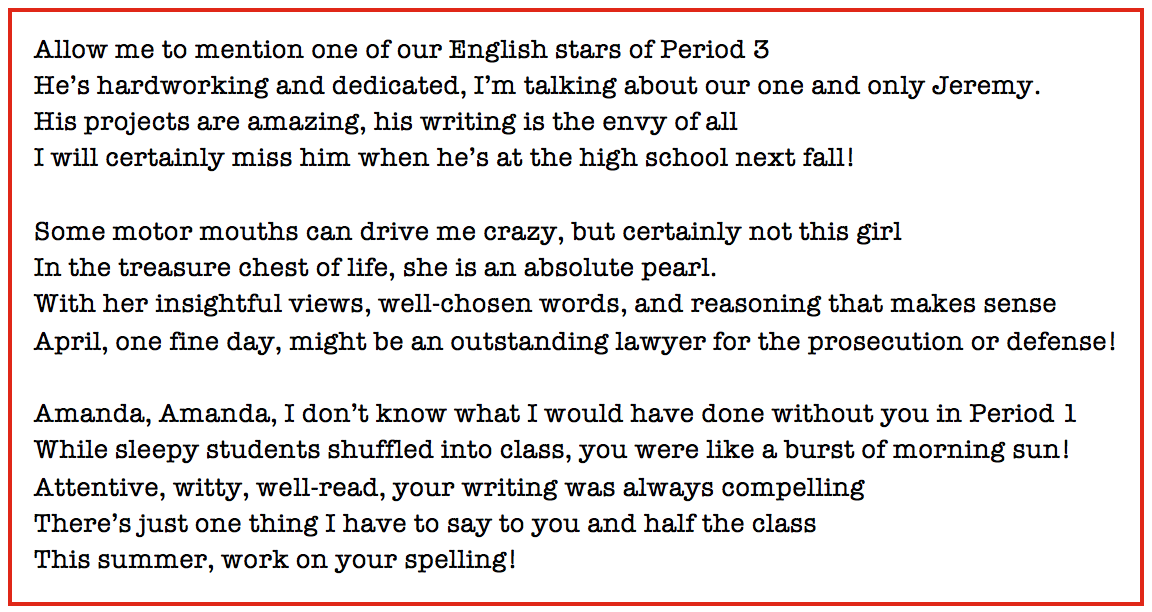
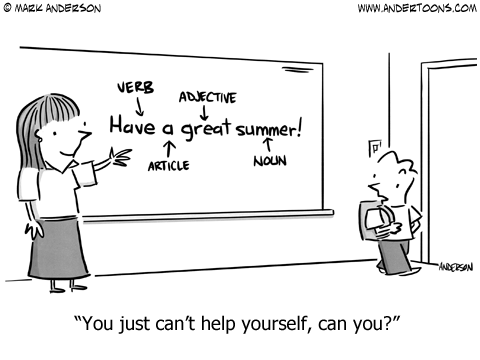

































Writing a letter as advice for next year rookies and students making their own test seem something that would work for me to keep them enthusiastic till the last day of school.
I also have the students write a letter of advice to themselves. In it they recommend to themselves how to get along better, what activities they might want to check out, what to do for academic success, etc. I have them place them in an envelope, then I pass the letters back to them the first week of school.